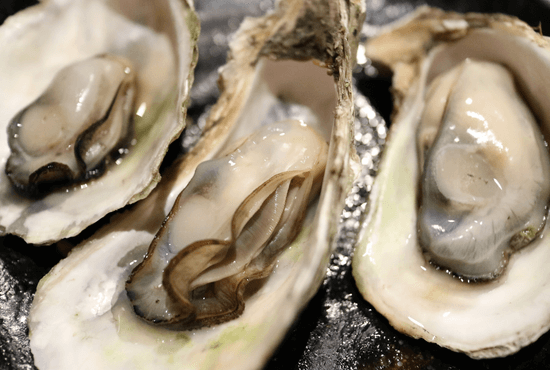Oysters have a separate fan base, and you might also be a part of it. If you love eating oysters once in a while, you definitely would want to know how to store them efficiently. So, what is the safest way to preserve them? And, is it possible to refreeze oysters after thawing?
You cannot refreeze oysters once they undergo thawing and freezing. That’s because freezing them again will reduce their freshness and flavor. Also, seafood is prone to contamination and may spoil even after freezing. Ideally, eating oysters while they are still fresh would be best.
Hello, there, seafood lovers! Are you wondering what to do with leftover oysters and avoid food wastage? Worry no more! This detailed guide below has the answer to all your concerns. Let’s read!
Table of Contents
Is It Safe To Refreeze Oyster?
Oysters are one of the most loved seafood, thanks to being low in calories and nutrient-dense. And on top of it, the delicious subtle sweet flavor makes every gathering extra special. But, the most frequent issue with seafood is storing them properly to increase its shelf life.
Freezing leftover oysters is convenient, but you should only do it once, as with most shellfish. Generally, one of the best ways to enjoy the oysters to the maximum is when they are fresh out of the water. You can have a taste of the nice flavors of raw oysters.
However, if you plan to keep them stored for a longer period, freezing is the way to go. But refreezing thawed oysters is never recommended. It is because the constant freezing and thawing ruin the taste and texture of the oyster meat. Or in the worst cases, refreezing can also lead to seafood spoilage.
Shucked oysters
Shucked oysters are simply oysters with shells removed and revealing the delicate inner flesh. If you have a large stock of shucked oysters at home, freezing it once will help keep them unspoiled for a while.
But, if you thawed the shucked oysters for consumption and now have some leftovers, avoid refreezing them at any cost. Eating the quantity, you have at hand would be best rather than tossing them back to the freezer.
Un-shucked oysters
Un-shucked oysters or oysters in their shells are also not a good candidate for refreezing. If you store them in the freezer after thawing, you will end up having oysters with an altered taste and texture. Surely, none of us would like to eat flavorless, bland seafood, so there is no point in refreezing them.
What Happens If You Freeze Oyster More Than Once?
We all know nothing can replace the experience of fresh seafood. However, life happens, and you might feel the need to store oysters for later use. Freezing is our go-to option, but you may have to face certain issues when you do it continuously. Let’s take a look at them!
Loss of taste and texture
Even freezing the oysters in shells or shucked ones can undergo significant quality change. The freezing process alters the flavor and texture of your favorite seafood. Frozen and thawed oysters are only suitable to be incorporated in cooked dishes rather than served raw.
Similarly, refreezing the oysters means further degradation and reduced quality. They will taste almost bland and chewy, and no cooking technique can salvage them. Thus, it is never advisable to freeze the oysters more than once.
Freezing kills oysters
If you want to save oysters from turning bad, freezing seems helpful. But, you must know that freezing can kill oysters. Because of this reason, you cannot consume them raw once they are frozen. Instead, you have to stick with cooking them in meals. So, imagine how many changes will happen in the oyster after refreezing. All your efforts will go in vain, so better utilize them after initial freezing and thawing.
Health risks
Oysters, particularly uncooked ones, are at risk of containing contaminants such as harmful microbes. For instance, they may be infected with vibrio bacteria, which can cause diarrhea, vomiting, and severe illnesses in extreme cases.
Refreezing them can further increase the risk of contamination; hence, it is not the safest option. Food and health safety authorities suggest cooking frozen oysters with proper techniques to kill all the lurking bacteria.
Easy Method To Avoid Refreezing Oyster
We all come to a point where we either have to refreeze oysters or discard them away. So, instead of wasting food, and especially seafood which is expensive, there is a great way to avoid all this hassle. Wonder how? Let’s dig in to find out!
- Wash all the oysters thoroughly by placing them under running water. It will remove all the excess dirt on the shells.
- Now divide the oyster into meal-size batches or by the number you usually eat in one setting.
- Place the clean oysters in a heavy-duty freezer bag. Ensure the bag is properly sealed so no moisture can escape from the mollusks.
- Freezing the oysters in separate batches allows you only to thaw the needed amount, and the rest remain safely frozen inside the freezer.
- Furthermore, it also eliminates the chances of future refreezing as you don’t have to deal with leftovers anymore.
- Label the bag with the freezing and expiration date, and let the oyster remain stored for as long as you prefer.
Defrosting Frozen Oysters Safely: Here’s How!
Although there are various ways to defrost oysters, the best is the one that is the safest and maintains the seafood’s freshness and quality. Cooking experts mostly go for refrigerator thawing when it comes to seafood.
Similarly, in the case of oysters, I suggest thawing them by transferring them from the freezer to the fridge. It is because oysters should defrost slowly, and the refrigerator is where you can achieve this. Usually, the oyster may take about twenty to twenty-four hours to thaw in the fridge fully. The time is almost the same for both shucked and un-shucked oysters.
Another good option to thaw oysters is by submerging the bag in cold water. It is faster than refrigerator thawing and takes about 30 minutes to thaw the oysters. But, safety-wise, the refrigerator wins from all other defrosting methods.
How Can You Tell If Frozen Oysters Have Spoiled?
Oysters are highly perishable and tend to spoil even after you freeze them well. Some of the common signs that indicate spoilage includes
- The oyster may taste or smell weird from the harvest.
- The oyster may be gaping open, which shows it is either weak or dead.
- The oyster may look drier, which means it is injured, weak, or about to die.
- If you notice any of the above signs, you must discard the oysters immediately as they are no longer safe for consumption.


